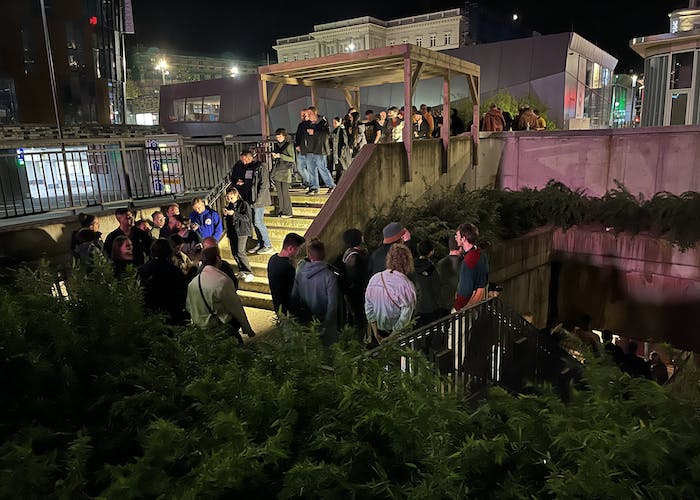
Saffron's Forward In Sound Training And The Fight For Music Industry Equality
As the Forward in Sound career development project begins, we caught up with Saffron’s Laura Lewis-Paul and Sophia Ahmed to hear how the organisation is striving to address the music industry’s gender imbalance.
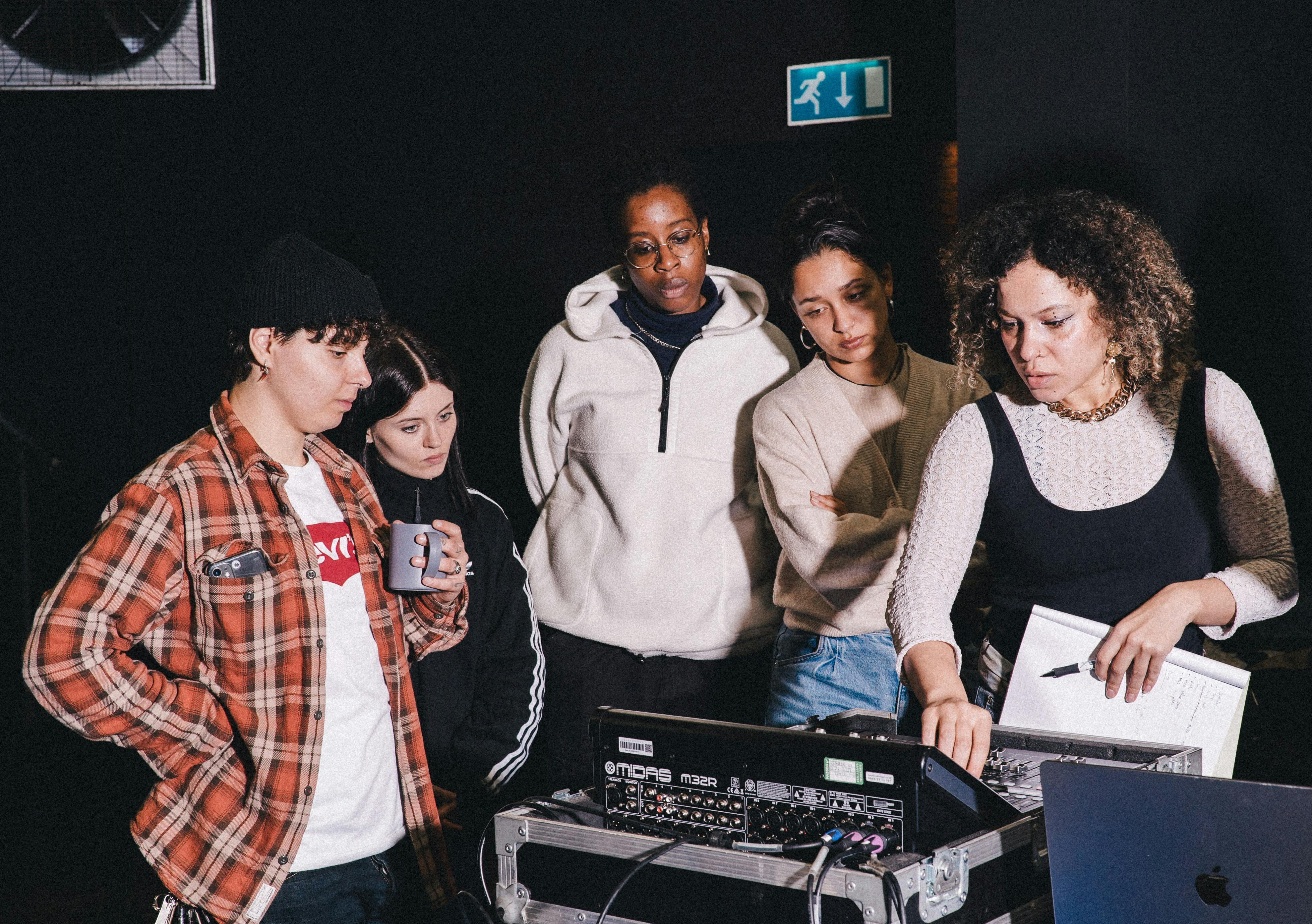
“Saffron has this incredibly diverse inclusive community,” says Laura. “But then we’re faced with the stats and an industry that is arguably not ready for these people to enter it. Saffron is here to support these changes; there are a lot of people who want to do this and our role is to help make this happen.”
“As a mixed-heritage woman in music and the creative industries, I’ve often found I have to work 10 to 100 times harder to get recognised,” says Saffron founder Laura Lewis-Paul. “That was the seed of what has become Saffron.”
Since the Bristol-based non-profit organisation’s inception in 2015, Laura has led her team to shift the dial on conversations surrounding women and non-binary music creators and professionals.
Initially, its work promoting gender equality focused on artist development and an accompanying record label, before moving towards music tech. Saffron’s ambitions are to create safe spaces for learning for those groups that statistics from the USC Annenberg Inclusion Report show have been left out of this part of the sector. Less than 5% of the music tech industry is comprised of women, non-binary or trans people, while less than 1% are Black, Asian or ethnically diverse.
Now Saffron is working alongside industry partners across a range of activities, including the Forward in Sound career development project. This is an initiative the organisation is presenting in May and June alongside Doors Open and Sound Services Ltd with support from Funktion-One.
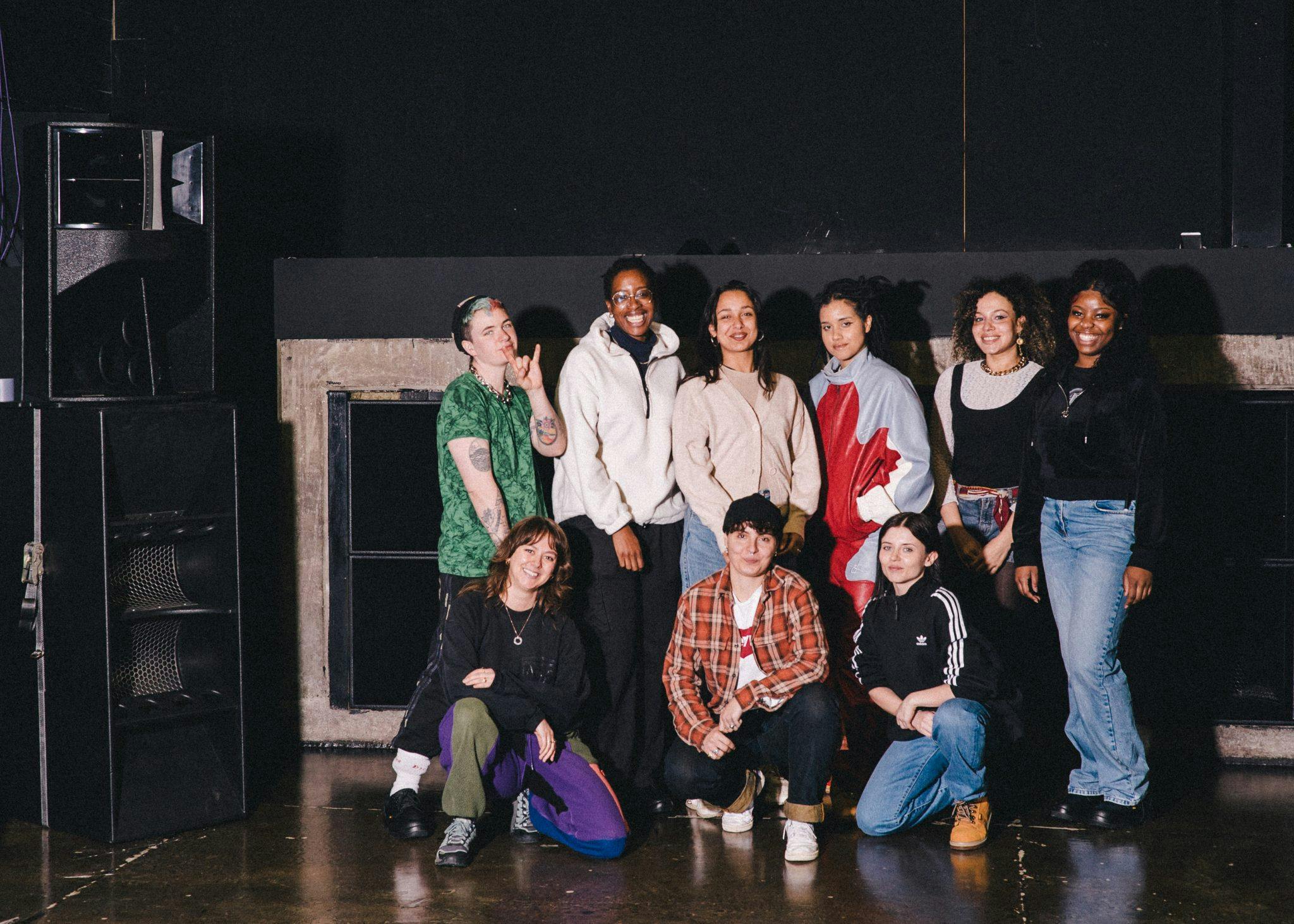
Gender imbalance is a deep-rooted and recurring issue for the music industry. The reports and data have mounted up. Fix The Mix’s figures showed how 0% of engineers and producers were women or non-binary on TikTok’s most streamed tracks of 2022. Only 3.9% of credited engineers were women or non-binary in 2023’s Grammy Awards ‘Best in Genre’ Albums.
“When we started Saffron, it was the direction that was hard to figure out,” Laura explains. “Then we started hearing more from our community, how when in studios and working with music producers it was a very white cis male space. It didn’t feel representative of them or their music and led us to where we are now.”
Mentoring, courses, membership, real life experiences, and connections with leading artists are all in Saffron’s mix of endeavours. Their education programme involves beginner level music tech courses, focusing on DJing, music production, sound engineering while they also run a radio broadcasting course in Bristol. One example is 7 Days of Sound, an annual week of online music tech workshops. However, despite their efforts, Laura is sceptical about how far the industry has moved forward. 2024’s Misogyny in Music report highlighted the ongoing disparities and discrimination. Language surrounding diversity and inclusion may have progressed, but behaviours and practices are still lagging.
“The conversations are there on the surface but there’s much more that needs to be done around inclusivity,” says Laura. “I would question how non-binary and trans people in the industry feel. It can seem a little throwaway and links to my thoughts around the way Black and Brown people are treated too. Really making space to ensure these communities are included takes a lot of work, energy and is an everyday act. But not all thinking is long-term.”
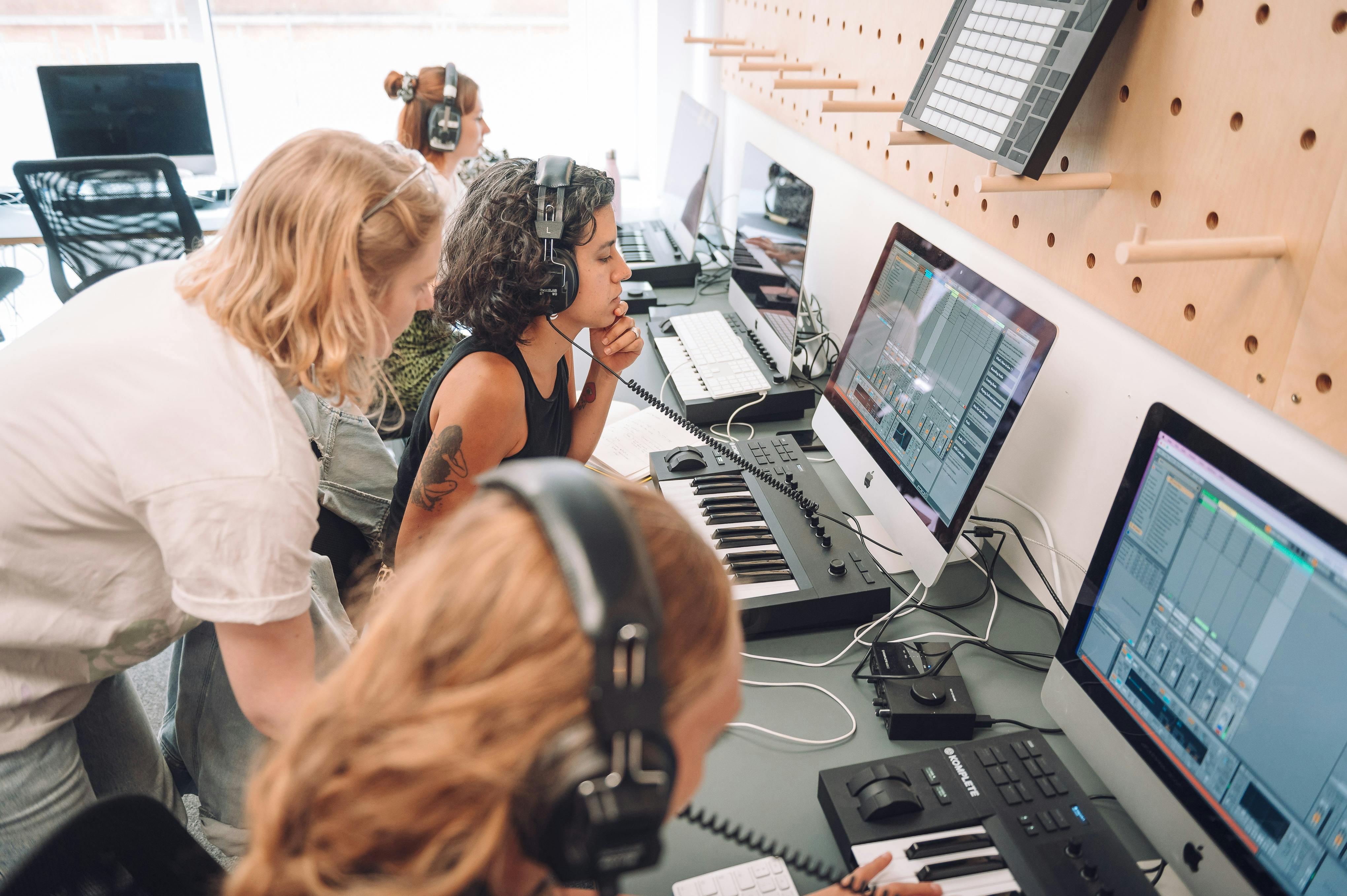
Saffron has expanded in its lifetime to include a range of courses while establishing a community that now has a global reach. It was the Covid-19 pandemic that led to the organisation, like so many, reassessing its priorities and pivoting to online as in-person events were shut down.
“I’m a traditionalist and always thought that meaningful connections had to be made in the room, to really feel that sense of people around you and peer support,” says Laura. “But actually, there’s so much collaboration and learning that takes place through our members' programmes online."
Saffron’s membership base now resides across 17 countries and 53 cities, including Lahore, Amsterdam, New York, Sydney and Istanbul. Brought together by online workshops and their membership platform, their digital efforts work alongside their in-person events to connect and educate people looking to take their music skills to the next level.
“During the pandemic, we were able to see our community supporting us too with their subscription fees while we as a company supported them - it’s a beautiful duality,” says Laura. “Connecting this global community has helped Saffron grow in a massive way.”
Challenges emerged in spring 2023, when funding cuts and sponsor withdrawals threatened Saffron’s stability and future. After a period of reflection, the organisation looked to reshape its priorities and strategy and utilised a crowdfunder to secure its future. Despite the volatility, Laura believes Saffron is now realigned and more assured in its direction.
“It was a challenging situation for us,” she says. “But the crowdfunder showed the great support for our organisation. It also made us more focused on targeting and working with industry partners to grow and evolve.”
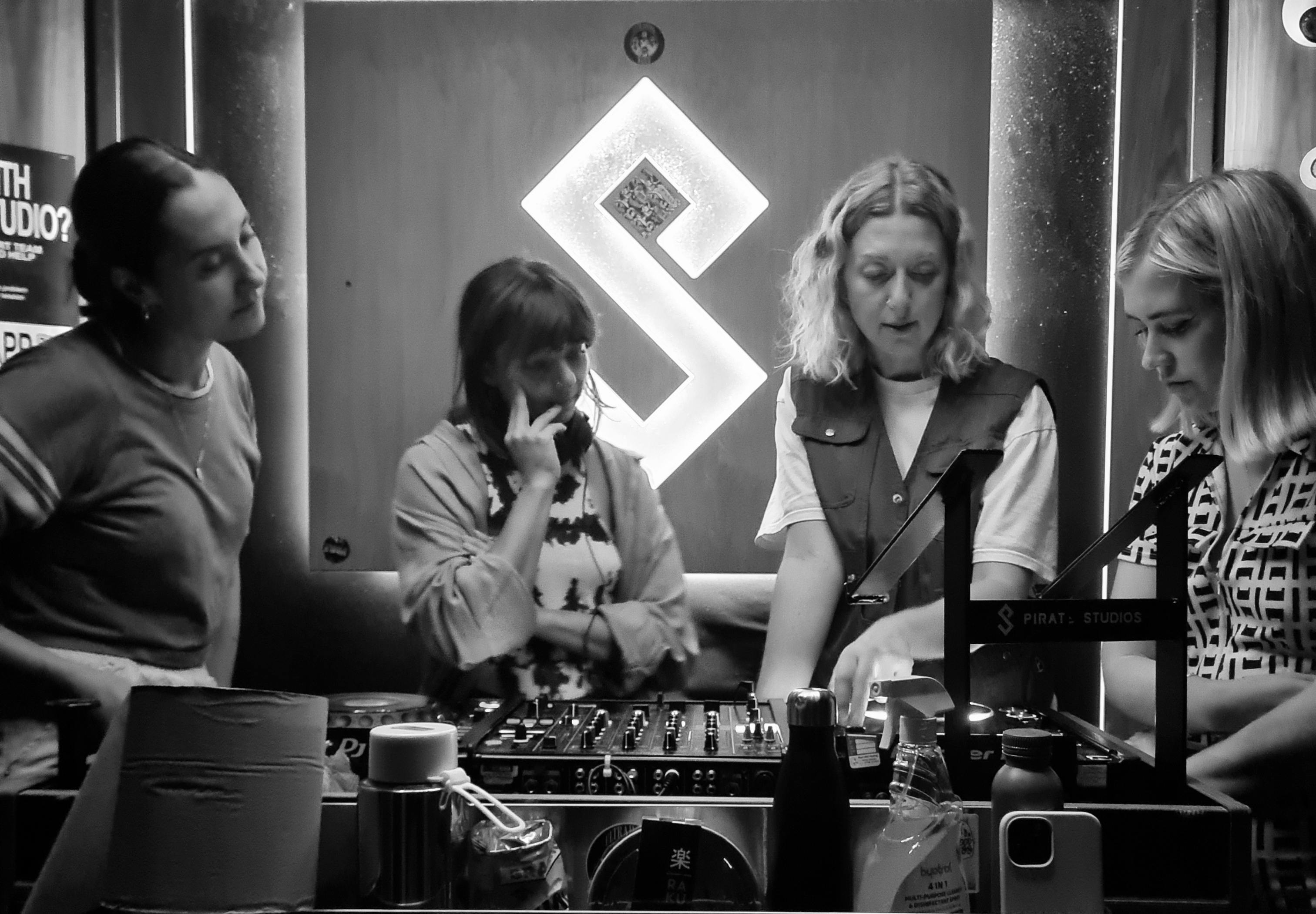
Saffron’s initiatives expanded to more than 300 events and workshops in 2023. Ranging from retreats to residency gigs for artists, the organisation has worked with industry success stories including I JORDAN, Blasha & Allatt and Echo Juliet and hosted DJ takeovers at festivals including Field Maneuvers. According to Sophia Ahmed, Saffron’s Education Manager, it was at this event where the idea for Forward in Sound was first born.
“Myself, Iona Thomas who works for Doors Open at RA, and the Sound Services team were all at the festival and just got chatting about what we wanted to achieve,” she says. “It’s a classic example of Field Maneuvers being an amazing dance music industry community. We had this thought that if the three of us came together, then we could really make something work.”
Forward in Sound begins with four days of training at East London venue, the Shacklewell Arms, with participants learning about various sound setups and the technicality of sound in a live setting. They will then receive training at the Sound Services warehouse, getting to grips with preparing for an event and how to manage an install before going into paid placements. This will include a session with Funktion-One Technical Design Engineer Mike Igglseden exploring the science of audio.
“They will do a live band style placement at the Shacklewell Arms, then a club night placement at 93 Feet East, then work on a festival or open air event with Sound Services,” explains Sophia. “They will get the chance to install the equipment, consider sound design and acoustics as well as the event itself and packing down the event. It’s a brilliant way to experience the process from beginning to end.”
With only six students on the course, Sophia and the Saffron team had to whittle this number down from 100 applications. Despite the interest and competition, the emphasis on facilitating connections, community and career groups is an essential element.
“We want to create small intimate groups so students feel as comfortable and as confident as possible in these learning environments,” Sophia says. “These smaller settings allow us to empower women and non-binary people and equip them with as much knowledge as possible to navigate the industry.”
After the course, Saffron will continue to give course participants the opportunity to engage with their organisation and the peers they’ve met. The members platform not only enables them to connect but continue to request support and help.
“We also set up WhatsApp groups as we want everyone who takes part to chat with each other, ask questions and continue to develop their relationships,” says Sophia. “We see a lack of representation in different parts of the music tech industry so these partnerships, whether with us, industry organisations or each other, are all important.”
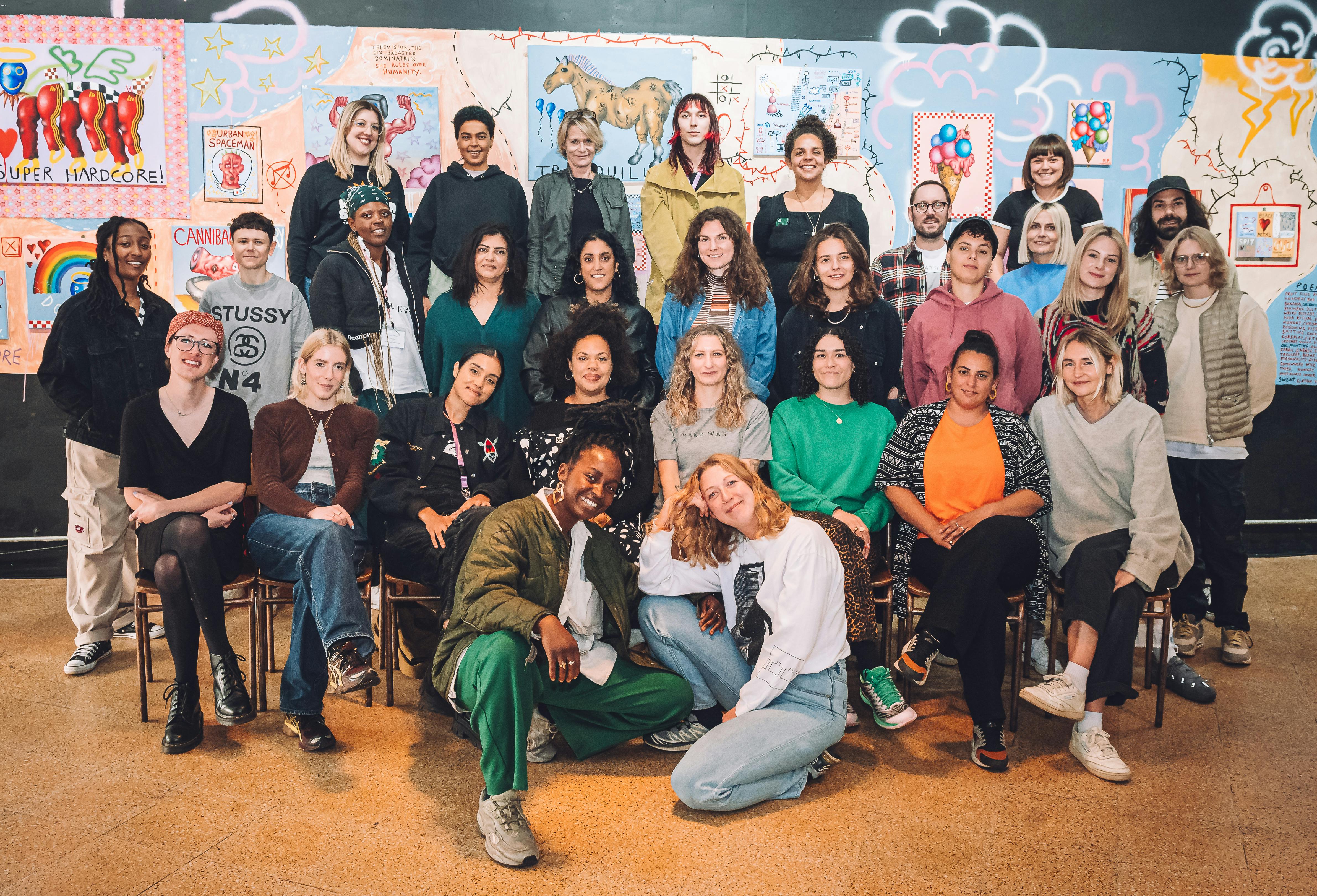
Training initiatives are a key part of the career progression for anyone wanting to enter the world of music technology and sound engineering. According to Sophia, building up experience and knowledge are essential steps on the career path.
“It’s a marathon not a sprint and with sound engineering you need to evolve your skills over time,” she says. “The more you learn, the more confident you will be and the more you will reach out to venues or speak with engineers at gigs.”
“Don’t fear asking for opportunities,” she continues. “But also be aware that it won’t be overnight success; it’s a long-term commitment of constant learning.”
Taking a course is just part of the Saffron experience; joining the community, signing up to the newsletter and mentoring are all available. As an artist or technician trying to build a career in today’s industry, finding a space where they can step away and focus on your self is a worthwhile investment.
“We recognise that for artists nowadays, it’s so much work,” says Laura. “They often have to be their tour manager, booking agent, social media and marketing manager. It’s a lot. We want to provide them with space and opportunity to invest in themselves.”
The rest of the year for Saffron will continue to be full of learning opportunities, all aimed at supporting their community into areas of the industry previously considered difficult to access.
“How can someone feel creative when they feel intimidated or when they feel excluded?” asks Laura. “Our work at Saffron is all about giving women and non-binary professionals this feeling that they belong alongside the skills and tools to be as creative and as successful as they can.”
